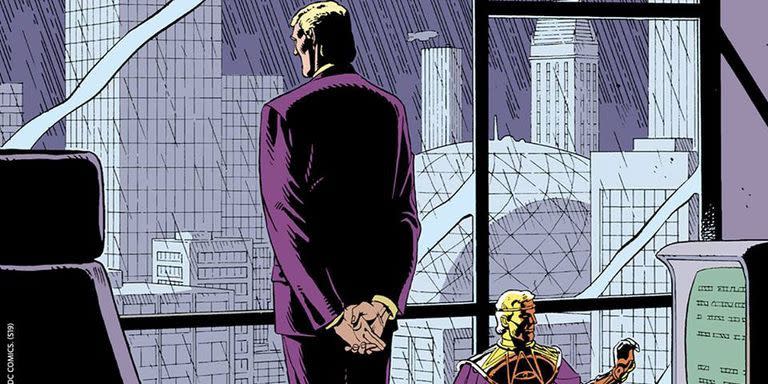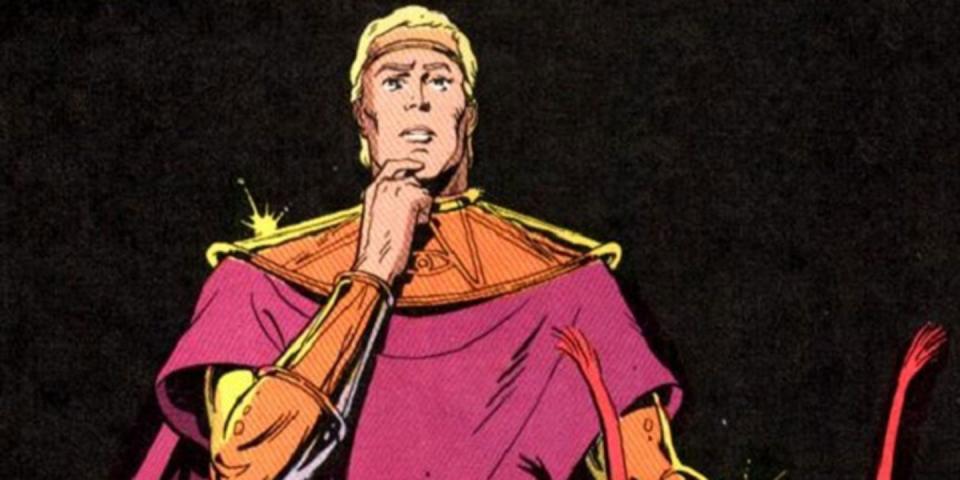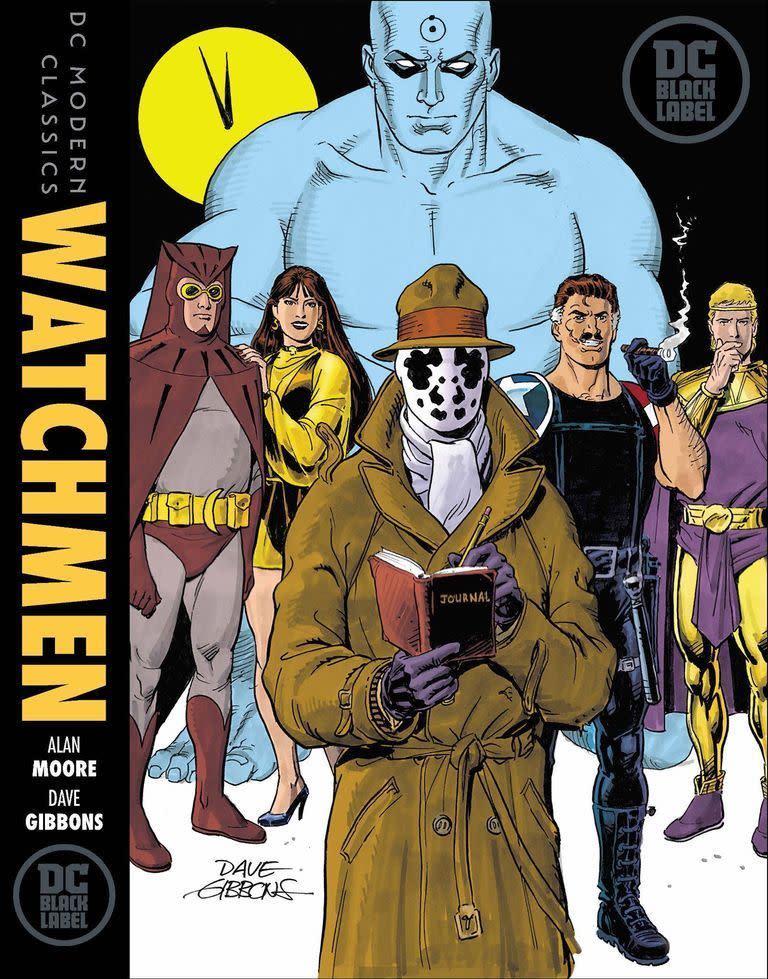Adrian Veidt Is 'Watchmen''s Most Evil Character

The third episode of HBO's Watchmen finds the show's mysterious-yet-compelling 'Lord of a Country Manor' —played irresistibly by Jeremy Irons— signing a letter to an unhappy 'game warden' with the name “Adrian Veidt.” That signature might not come as much of a surprise to comic fans (or to any non-comic fans, who have probably never heard that name before), the revelation, nonetheless, finally, officially confirms the return of a key Watchmen character–Ozymandias.
The beginning of the graphic novel finds Veidt, who fought crime under the moniker "Ozymandias," having retired from the superhero game to become a business mogul. He first appears in the graphic novel, looking ominously out the window a la Kingpin; it was the comic telling us that he was going to stir up some serious, serious shit. And he did.
In the HBO series, Veidt is shown seated, wearing a robe, and meditating on top of his desk. While the aging man may not at first appear to be a major player, the character, in fact, just might be the smartest and most powerful mortal of the Watchmen universe.
Here’s how he impacted that universe in the comic.
Becoming “Ozymandias”
The story begins in 1985, but readers don't find out Veidt’s backstory until significantly later in the narrative (long after he's retired from crime-fighting). We first meet him in his office, approached by Rorschach, who's come with a warning: someone may be murdering former crimefighters. (The body of both their former colleague, The Comedian, had been recently discovered.)
Veidt had been orphaned at the age of 17. His parent’s deaths left him a small fortune, but the teenager, who had graduated high school at 14 due to an abnormal intelligence, decided to give the money to charity and embark on a quest. He followed the route of Alexander the Great, his idol.
“I wanted to match his accomplishment, bringing an age of illumination to a benighted world,” Veidt said. After wandering into the desert and eating a ball of hashish, Veidt had a vision and resolved to purge evil from the world.
Upon returning home, Veidt began fighting crime and then building an empire. He retired after the legislation known as the Keene Act outlawed superheroes.

Becoming the story’s antagonist
After being told of the Comedian’s death, Veidt disappears for much of the novel. As the story’s other characters investigate the murder, Veidt's plan continues to unfold. When Rorschach reappears, this time in the Antarctic—where Veidt had built a retreat—he confronts Ozymandias, who admits to the whole plan.
He explained how he had killed The Comedian, how he had forced Doctor Manhattan to flee Earth, how he had constructed a giant squid to be dropped on Manhattan, killing millions, but scaring the world into union over a shared (but perceived) intergalactic enemy, avoiding nuclear war. Rorschach stands shocked. Then Veidt reveals that his plan has already taken place, and millions of people have died. He turns to a set of television screens as the world mourns together. His plan succeeds.
Veidt’s storyline ends when Doctor Manhattan returns to Earth, agreeing to keep Veidt’s false flag operation secret. He leaves Veidt with these words: “nothing ever ends.”
That final line may sound familiar to fans of Damon Lindelof's HBO show; in the second episode, the older Veidt repeats this line as its uttered in his play.

Character Meaning
Although Veidt succeeds, the reader will likely find Veidt’s plan strongly amoral. Indeed, the character, by means of the comic’s visual positioning, seems to resist sympathy; he inhabits all the classically villainous poses–back to the reader, lording over a city, seated in a throne, etc. He may present himself as a pioneer or a philosopher king, but the reader is very much meant to see Veidt as a despot. This perfect, Olympian figure whose intellect and ambitions combine the enterprising of a tech mogul and the delusions of a Nazi eugenicist–this man has to be nothing other than the story’s villain.
The irony, however, is that Veidt’s villainy coexists with a strong American essentialism. His own story–with his benevolence and pursuit of knowledge/justice–retains a grand, founding-father like tone. (His ascent through the business world, his manufacturing of toys in his image, his capitalistic success, all feel equally American.) Veidt's geopolitics too, his need to unite nations in a kind of harmony, seems not dissimilar to the image of world-policeman tied to the American efforts in the Cold War and after. And the Watchmen–“custodiet” in the original Latin saying, also translatable to “guards”–are indeed all American. O say, can you see?
You Might Also Like

